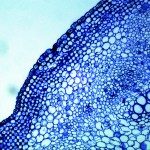Link to Pubmed [PMID] – 22731491
Biochem. J. 2012 Sep;446(3):509-16
Type I IFNs (interferons) are pathogen-induced immunoregulatory cytokines that exert anti-viral and anti-proliferative activities through binding to a common cell-surface receptor. Among the 17 human IFN subtypes, IFNβ binds the IFNAR (IFNα receptor) 1/IFNAR2 receptor chains with particularly high affinity and is especially potent in select bioactivities (e.g. anti-proliferative and pro-apoptotic) when compared with IFNα2. However, no molecular basis has been ascribed to this differential action, since the two ligands are equipotent in immediate early signalling events. In the present study we report that IFNβ induces Stat (signal transducer and activator of transcription) phosphorylation and transcriptional activation of ISGs (interferon-stimulated genes), including two genes with pro-apoptotic functions, for a considerably longer time frame than does IFNα2. We show that the diversification of α2/β responses progressively builds up at the receptor level as a result of accumulating USP18 (ubiquitin specific protease 18), itself an ISG, which exerts its negative feedback action by taking advantage of the weakness of IFNα2 binding to the receptor. This represents a novel type of signalling regulation that diversifies the biological potential of IFNs α and β.

